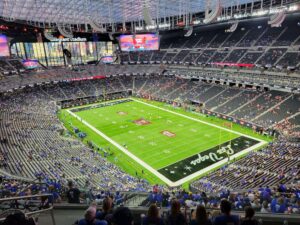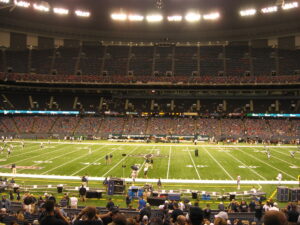Ranking NFL Stadiums by Wi-Fi Quality: A Fan’s Guide
Jeff Wolverton
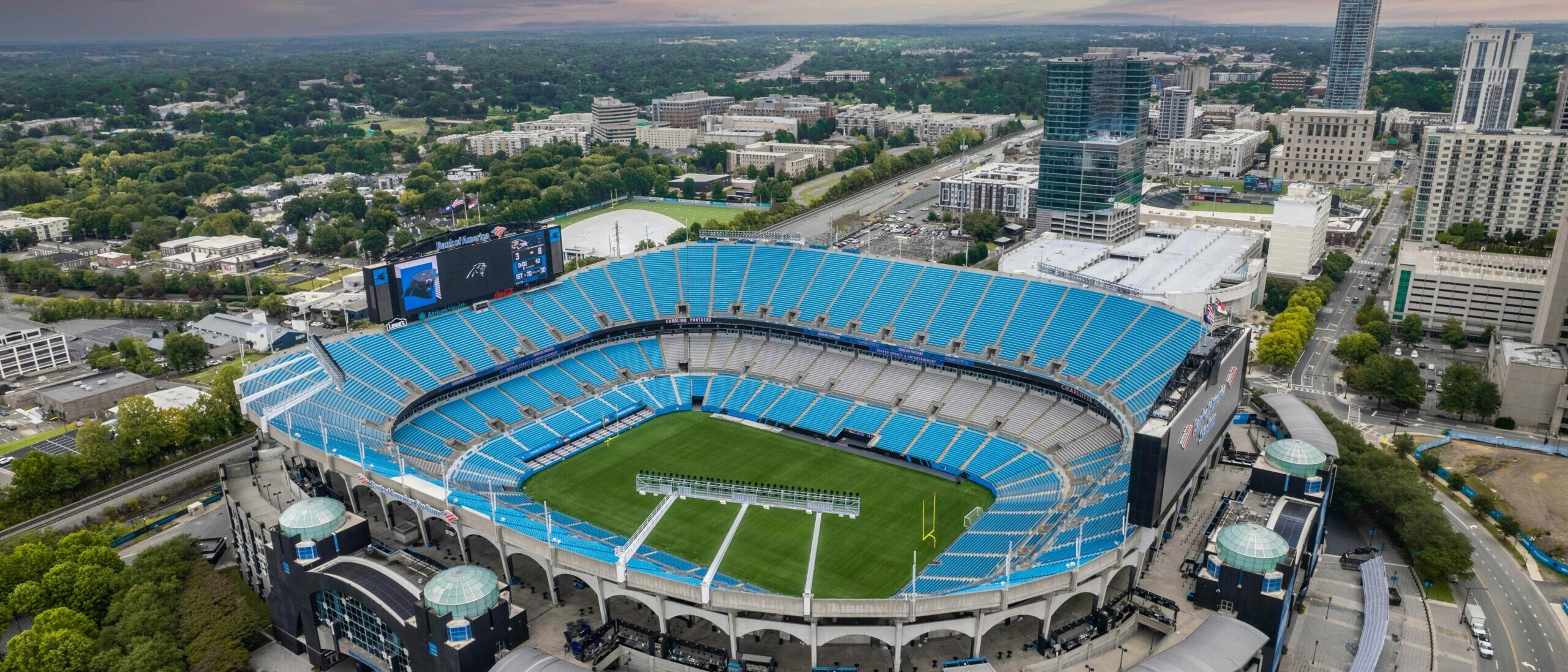
The State of NFL Stadium Wi-Fi in 2024
With the NFL season around the corner, game attendance has consistently increased every year since 2020, according to Statista. Additionally, ticket prices have been rising, with an 8.2% increase from 2022 to 2023. But as ticket prices climb, fans want more than just a good view of the action—they expect top-tier connectivity, too. So, which NFL stadiums offer the best Wi-Fi coverage? PivIT Strategy analyzed 30 NFL stadiums and over 400,000+ Google Reviews to find out.
While anyone can test Wi-Fi download and upload speeds using online speed tests, real user experiences often tell a more nuanced story. For fans paying an average of $120.94 per game ticket last season, reliable Wi-Fi is more than a convenience—it’s a necessity. When cellular data slows due to network congestion, stadium Wi-Fi becomes the go-to option for fans who need to stay connected to their group, access digital tickets, handle emergencies, or simply share their game-day experience on social media.
In this report, we calculated the average Wi-Fi ranking for the 30 NFL stadiums based on reviews. Check out our findings below.
Main Findings
- Newer stadiums have more Wi-Fi complaints than older stadiums. SoFi Stadium and Allegiant Stadium received the highest number of complaints.
- Shared stadiums like SoFi Stadium (home to both the Rams and Chargers) and MetLife Stadium (home to both the Giants and Jets) ranked in the top 10 for worst Wi-Fi.
- 14 total stadiums had no positive Wi-Fi reviews, indicating widespread dissatisfaction.
- Paycor Stadium had the most negative Wi-Fi reviews without a single positive review.
- 9 stadiums had neutral scores or no score at all (indicating an even number of good and bad reviews or no Wi-Fi reviews within the last two years).
The Worst Wi-Fi
1. SoFi Stadium
-
- Year Built: 2020
- Teams: Los Angeles Rams, Los Angeles Chargers
- Details: SoFi Stadium is one of the newest and most technologically advanced stadiums in the NFL. However, despite its modern amenities, many fans have reported significant issues with the stadium’s Wi-Fi. This is likely due to the sheer number of devices trying to connect during games, especially during packed events. While SoFi boasts impressive architecture and other high-tech features, its Wi-Fi infrastructure has not been able to keep pace with fan expectations, resulting in more complaints than many older venues.
2. Paycor Stadium
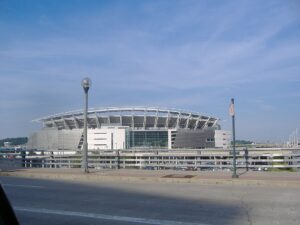
-
- Year Built: 2000
- Team: Cincinnati Bengals
- Details: Paycor Stadium, home of the Bengals, is over two decades old and hasn’t seen significant updates to its technology infrastructure. As a result, its Wi-Fi service is extremely unreliable, with fans consistently complaining about a lack of connectivity during games. The stadium lacks modern upgrades, and this may explain why Paycor Stadium had no positive Wi-Fi reviews, making it the lowest-rated in terms of wireless connectivity.
3. Allegiant Stadium
-
- Year Built: 2020
- Team: Las Vegas Raiders
- Details: Allegiant Stadium, like SoFi, is one of the most recently built stadiums. Despite its brand-new construction and being a showcase venue in the entertainment capital of the world, its Wi-Fi struggles to perform during events. This may be due to an underestimation of how many fans would rely on Wi-Fi or insufficient upgrades to its network capacity since opening. Allegiant’s Wi-Fi issues are particularly surprising given its relatively new status.
4. Highmark Stadium
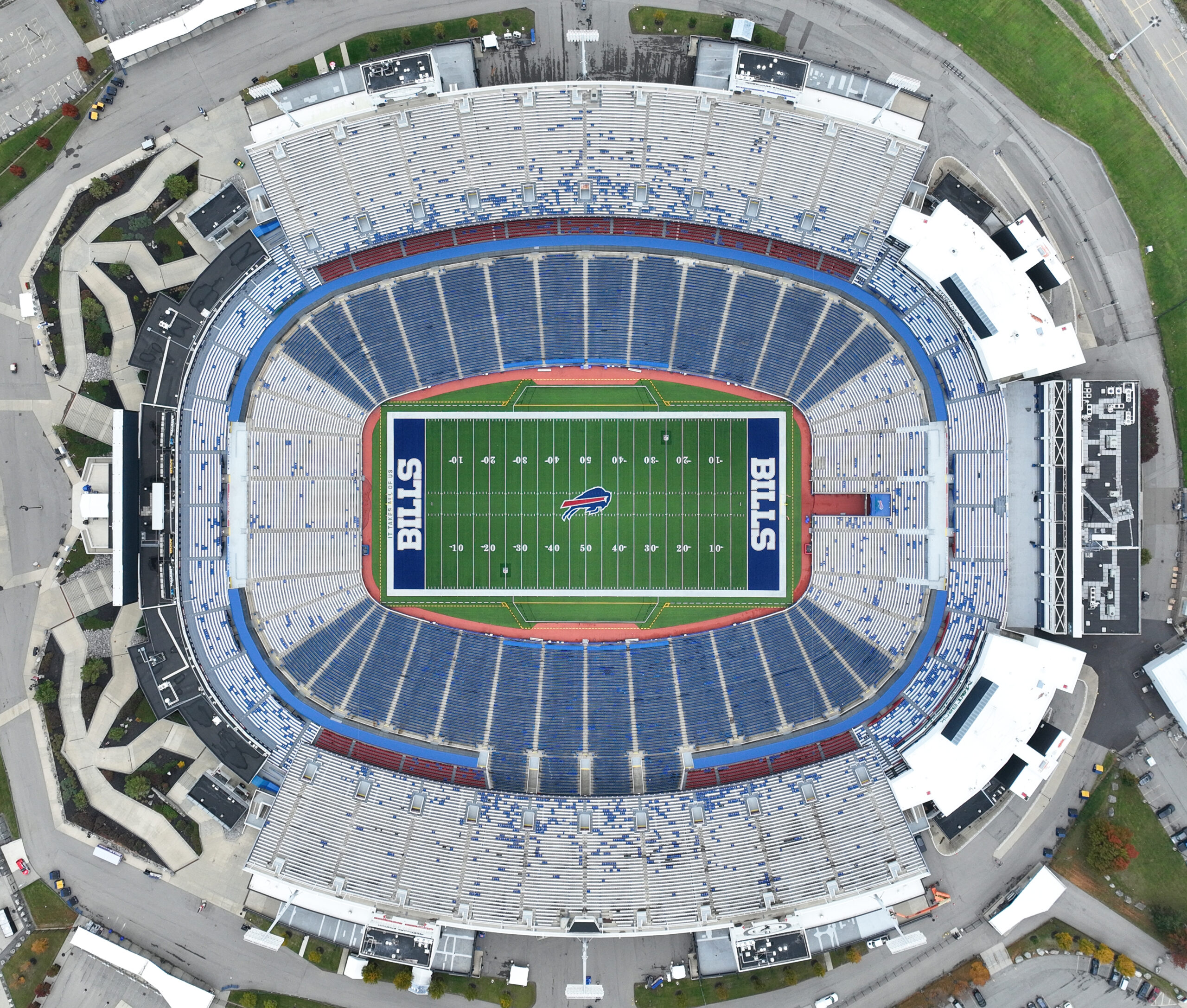
-
- Year Built: 1973
- Team: Buffalo Bills
- Details: Highmark Stadium is one of the oldest stadiums still in use in the NFL, and it shows when it comes to Wi-Fi quality. With decades passing since its opening, the stadium has had limited technological upgrades over the years. Fans consistently report slow or dropped connections, particularly when the stadium is full. Although there have been discussions of a new stadium for the Bills, Highmark’s aging infrastructure is likely contributing to its poor Wi-Fi performance.
5. Nissan Stadium
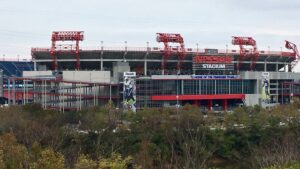
-
- Year Built: 1999
- Team: Tennessee Titans
- Details: Nissan Stadium has now been in operation for over 20 years and has not seen substantial updates to its Wi-Fi infrastructure. Fans regularly experience slow speeds and poor connectivity during games. The stadium is located in a major metropolitan area, which only adds to the frustration, as fans are often accustomed to better service in other parts of the city. It’s clear that Nissan Stadium’s network hasn’t kept up with modern demands.
6. Arrowhead Stadium
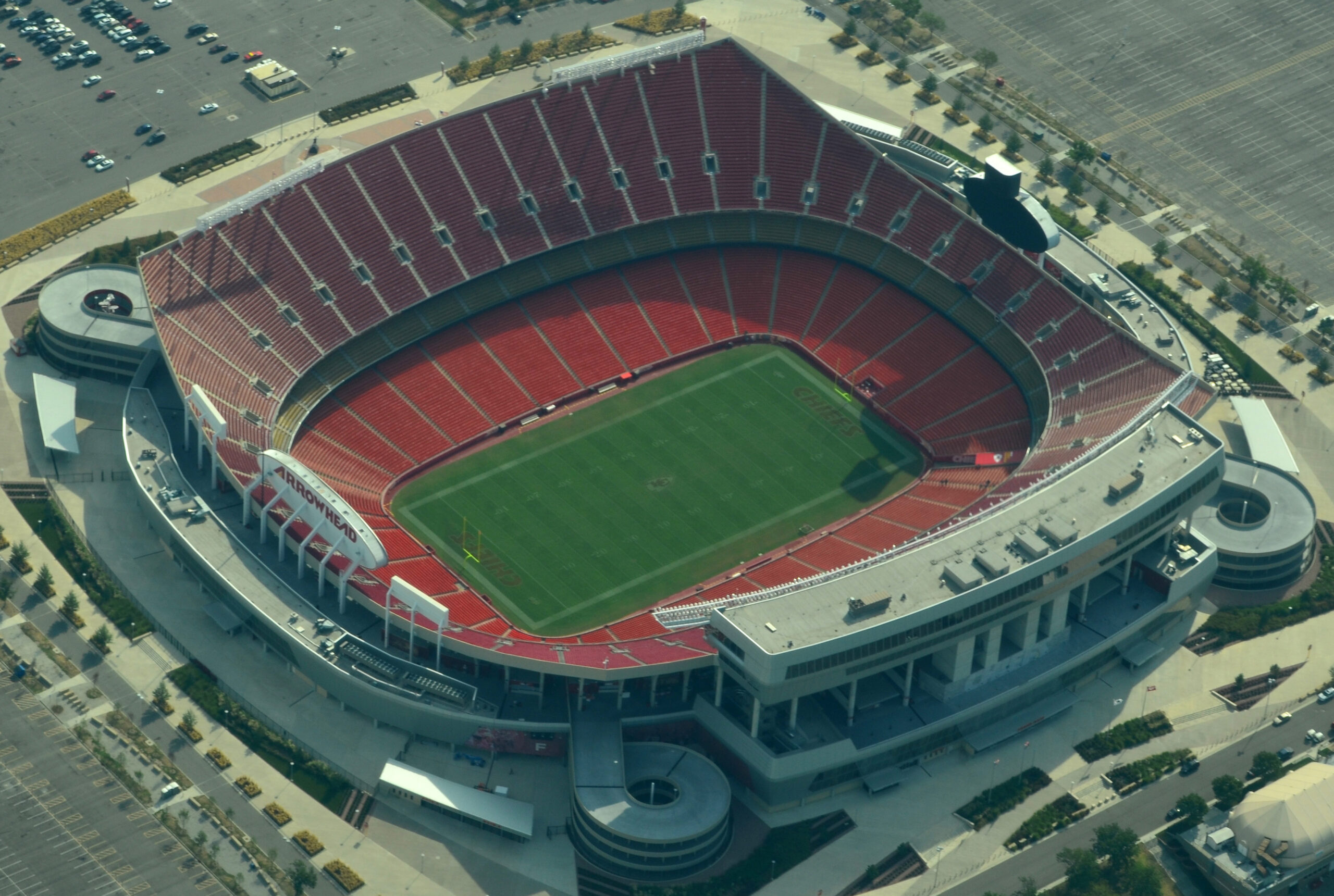
-
- Year Built: 1972
- Team: Kansas City Chiefs
- Details: Arrowhead Stadium, known for its electric atmosphere and passionate fans, unfortunately does not offer the same excitement when it comes to Wi-Fi. The stadium has gone through several renovations over the years, but Wi-Fi remains a weak point. Fans often report struggling to get connected during games, and this is particularly frustrating for those trying to share their experience online or use mobile tickets.
7. M&T Bank Stadium
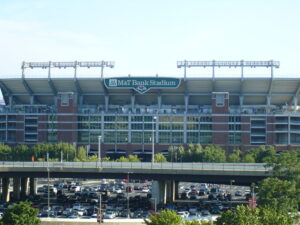
-
- Year Built: 1998
- Team: Baltimore Ravens
- Details: M&T Bank Stadium has not seen major renovations in its Wi-Fi infrastructure despite being in a city known for its innovation in other industries. As a result, Wi-Fi performance lags behind more modern venues. Fans frequently experience difficulties with connectivity, especially during sold-out games or major events. While the stadium’s layout and amenities are well-regarded, its wireless network leaves much to be desired.
8. Bank of America Stadium

-
- Year Built: 1996
- Team: Carolina Panthers
- Details: Bank of America Stadium is another venue that suffers from aging infrastructure. While it has been updated over the years to improve the fan experience, the Wi-Fi system has not kept pace with the growing demands of smartphone users. Fans often struggle with connectivity, particularly when trying to access mobile tickets or share game-day highlights.
9. MetLife Stadium
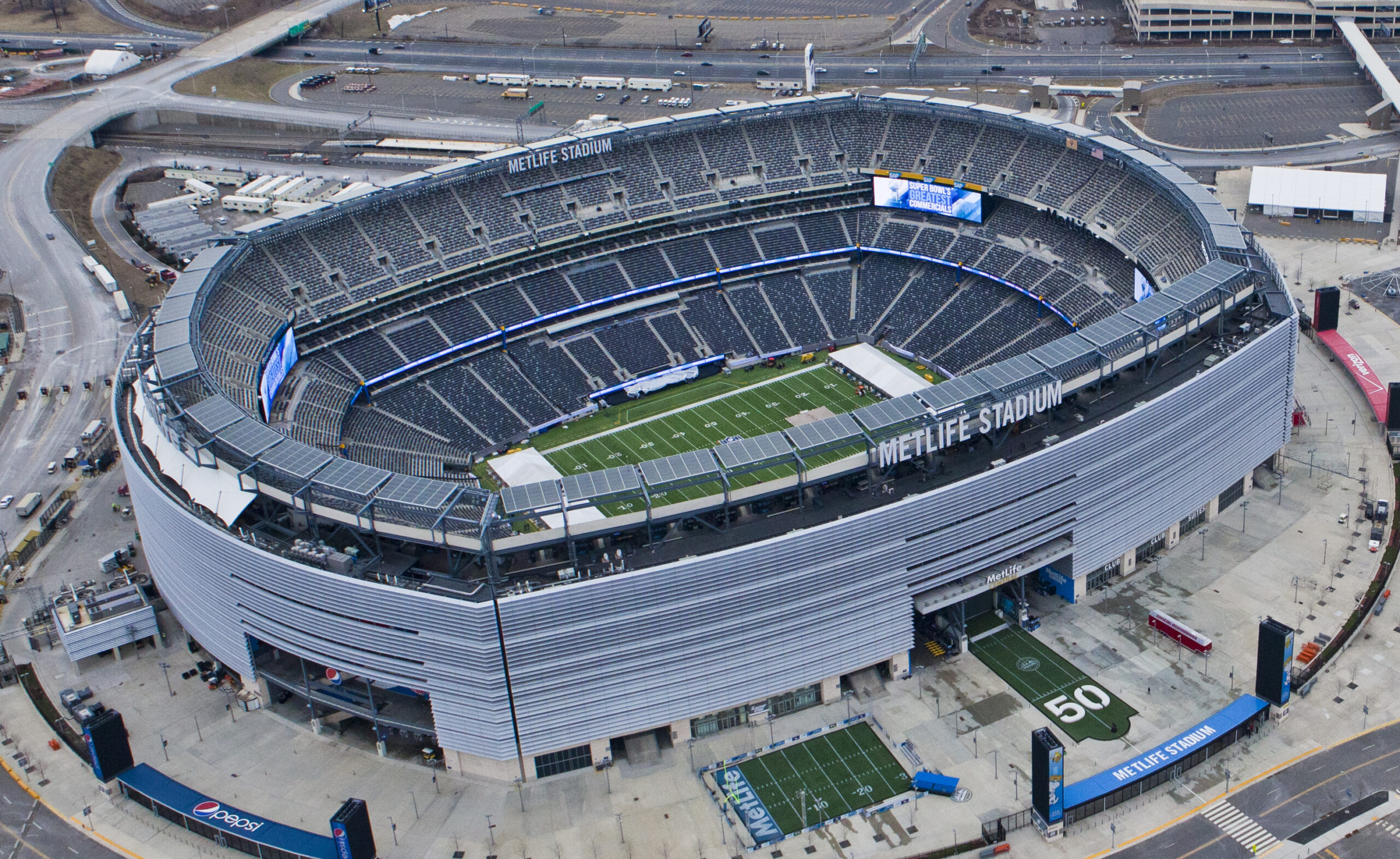
-
- Year Built: 2010
- Teams: New York Giants, New York Jets
- Details: MetLife Stadium is relatively new compared to many other NFL venues, but its Wi-Fi performance has been disappointing. As a shared stadium hosting two teams, the network is often overloaded, particularly during games with large crowds. Despite its modern design and being located in one of the largest metropolitan areas in the country, MetLife’s Wi-Fi fails to meet the expectations of tech-savvy fans.
10. Lincoln Financial Field
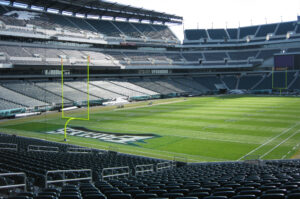
-
- Year Built: 2003
- Team: Philadelphia Eagles
- Details: Lincoln Financial Field has been a staple in the NFL for 20 years, but its Wi-Fi network has not aged well. Despite efforts to modernize other aspects of the stadium, fans consistently report issues with slow and unreliable Wi-Fi. The stadium’s layout may also contribute to connectivity problems, as fans seated in certain areas report worse performance than others.
11. Soldier Field
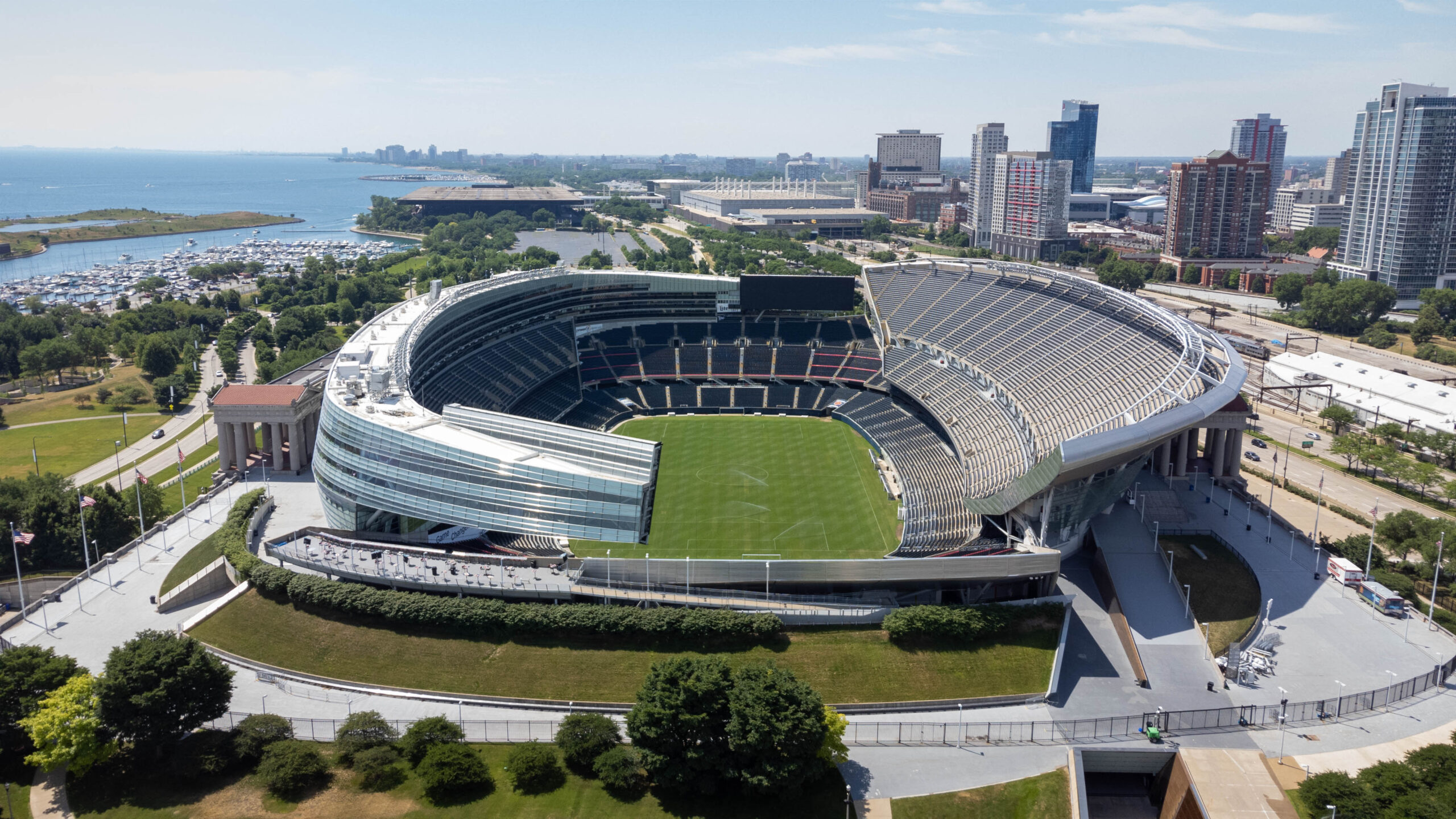
- Year Built: 1924 (renovated 2003)
- Team: Chicago Bears
- Details: Soldier Field is the oldest stadium in the NFL, and while it underwent significant renovations in 2003, it still lags behind in terms of Wi-Fi performance. Fans regularly complain about the network being outdated and unreliable. Given its iconic status and historical significance, it’s surprising that Soldier Field hasn’t invested more in improving its wireless network.
12. Caesars Superdome
- Year Built: 1975
- Team: New Orleans Saints
- Details: The Superdome is a legendary venue, but its Wi-Fi network is far from legendary. Built nearly 50 years ago, the stadium has undergone numerous renovations, yet fans continue to report connectivity issues. Given the stadium’s large capacity and frequent hosting of major events, it’s clear that the Wi-Fi infrastructure is in need of a significant upgrade.
Neutral Wi-Fi Scores
13. State Farm Stadium
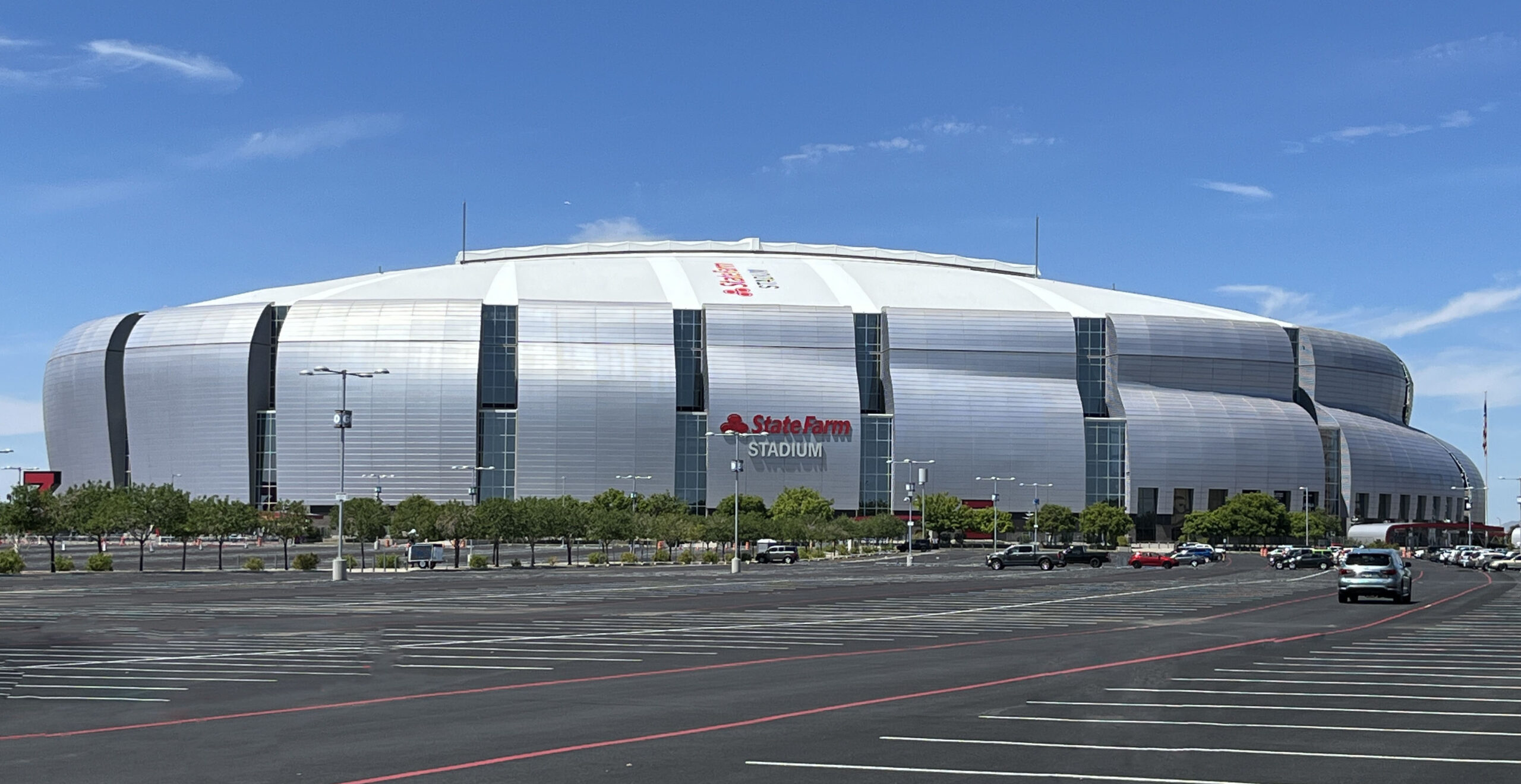
- Year Built: 2006
- Team: Arizona Cardinals
- Details: State Farm Stadium is one of the more modern stadiums in the NFL, and while it offers decent Wi-Fi coverage, it’s not always consistent. Fans report a mix of experiences, with some praising the connectivity while others have struggled to stay connected. The fluctuating performance suggests that Wi-Fi quality may depend on the crowd size or specific event.
14. NRG Stadium
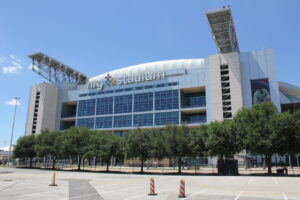
- Year Built: 2002
- Team: Houston Texans
- Details: NRG Stadium has a reputation for being a well-maintained venue, but its Wi-Fi service can be unpredictable. Fans report varied experiences, with some games offering excellent connectivity and others leaving fans without a reliable signal. Despite hosting major events like the Super Bowl, the stadium’s Wi-Fi performance has room for improvement.
15. Hard Rock Stadium
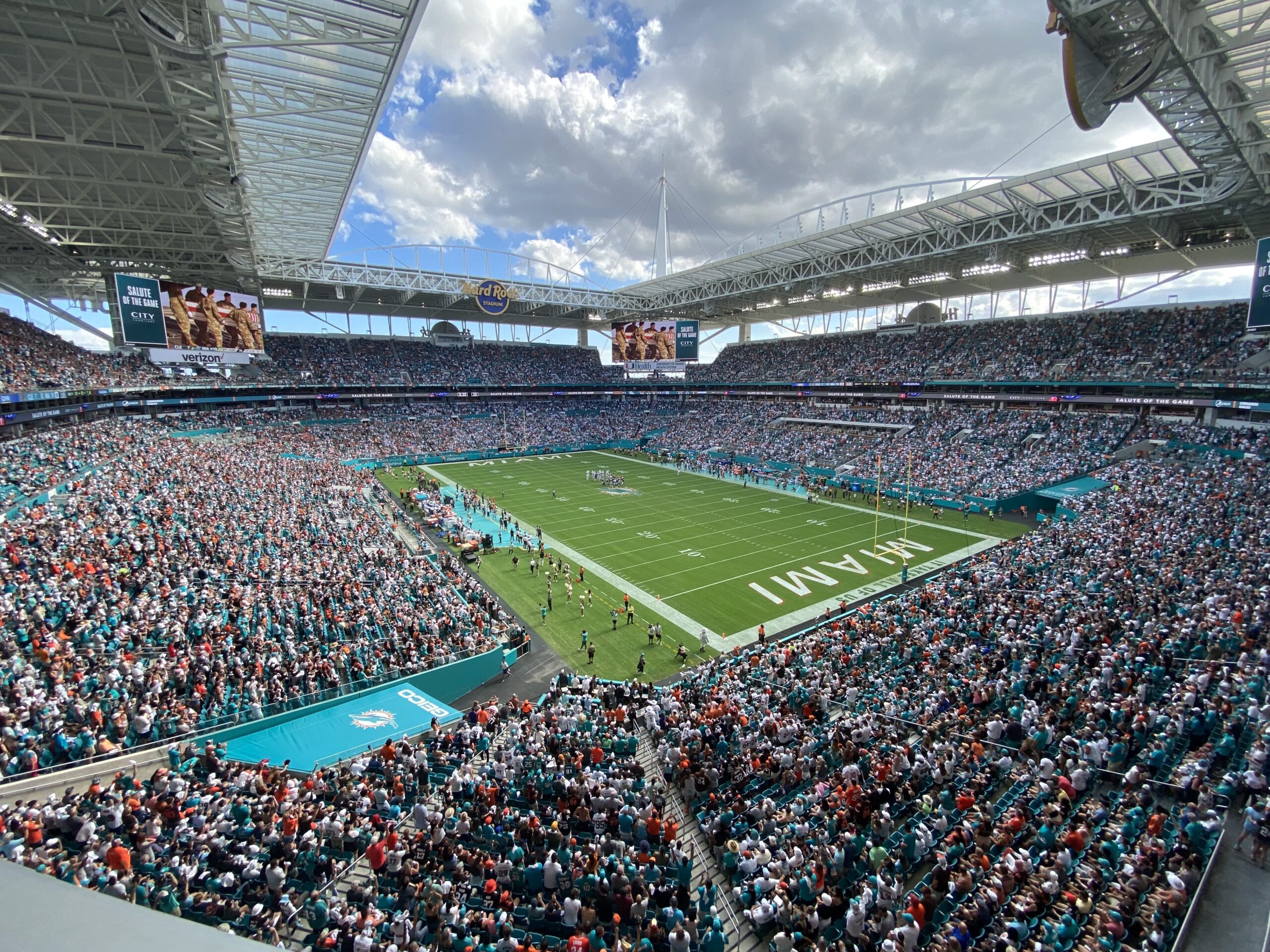
- Year Built: 1987 (renovated 2016)
- Team: Miami Dolphins
- Details: After undergoing significant renovations in 2016, Hard Rock Stadium offers a modern fan experience, but its Wi-Fi remains inconsistent. Some fans report good connectivity during games, while others experience difficulties. The renovations improved many aspects of the stadium, but the Wi-Fi network still has areas that need attention.
16. Gillette Stadium
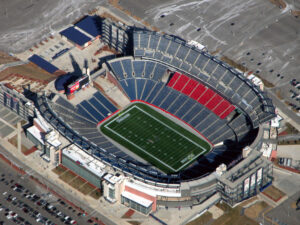
- Year Built: 2002
- Team: New England Patriots
- Details: Gillette Stadium offers a generally reliable Wi-Fi experience, but it’s not immune to connectivity issues. Fans often find that the network can slow down during larger games or concerts. While the stadium has undergone some upgrades, its Wi-Fi infrastructure hasn’t seen the same level of modernization as other facilities.
17. Acrisure Stadium
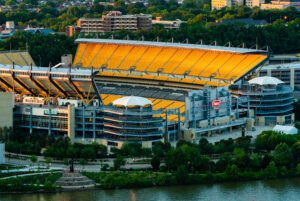
- Year Built: 2001
- Team: Pittsburgh Steelers
- Details: Acrisure Stadium’s Wi-Fi performance is average, with some fans praising its reliability while others struggle to stay connected. The stadium has hosted numerous major events, and while its technology has been updated in some areas, the Wi-Fi still faces challenges, especially during peak times.
18. Raymond James Stadium
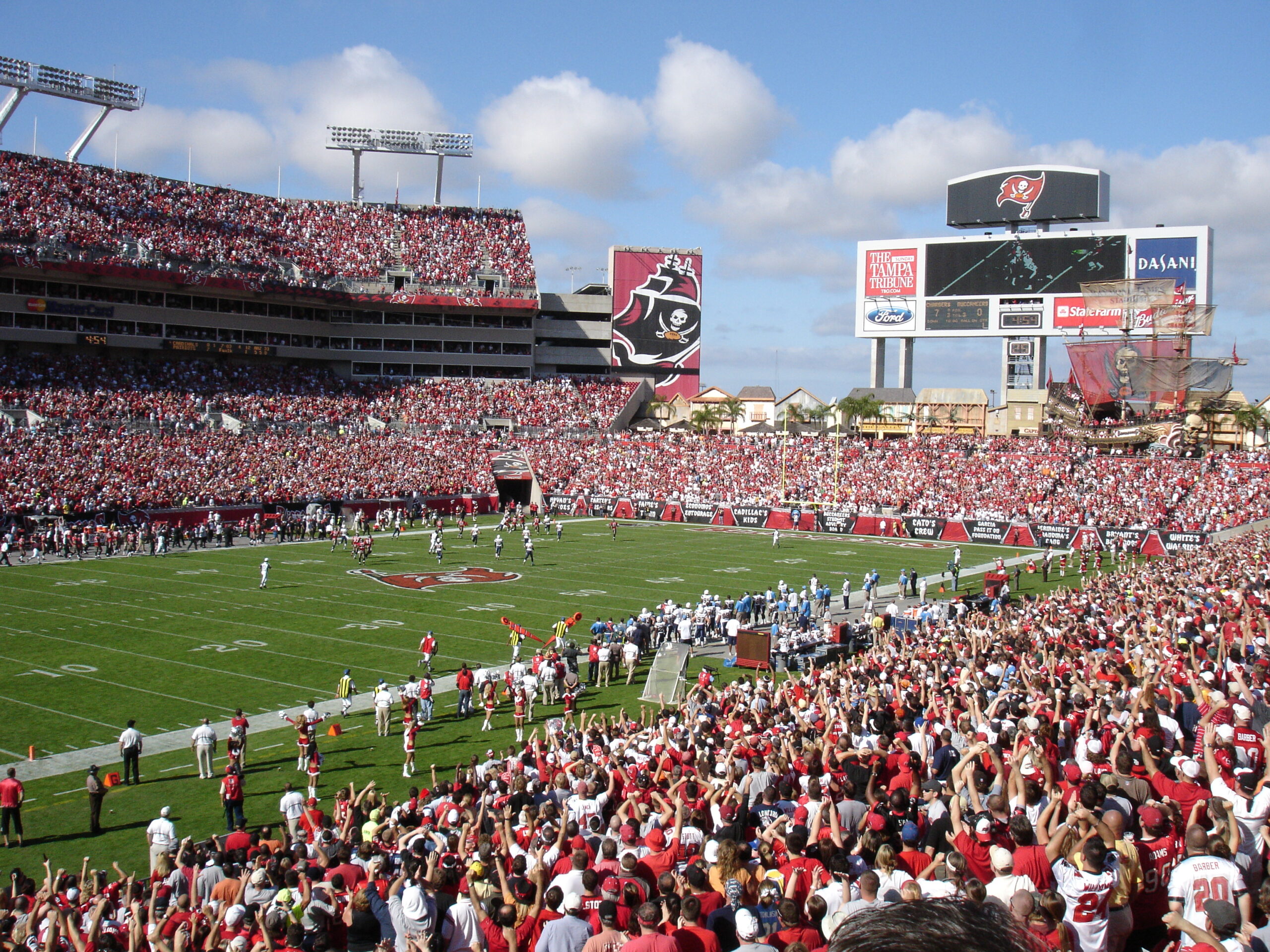
- Year Built: 1998
- Team: Tampa Bay Buccaneers
- Details: Raymond James Stadium offers decent Wi-Fi, but the network can be unreliable when the stadium is at full capacity. Fans have mixed experiences, with some praising the connection and others finding it difficult to stay online. The stadium’s location in a major city means fans expect better connectivity, which can lead to frustration.
19. FedExField
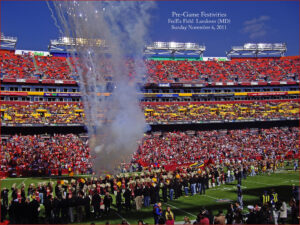
- Year Built: 1997
- Team: Washington Commanders
- Details: FedExField’s Wi-Fi performance is hit-or-miss, with some fans finding it acceptable and others reporting major issues. The stadium has not seen significant upgrades in recent years, and this may be contributing to its inconsistent Wi-Fi experience.
The Best Wi-Fi Scores
20. U.S. Bank Stadium
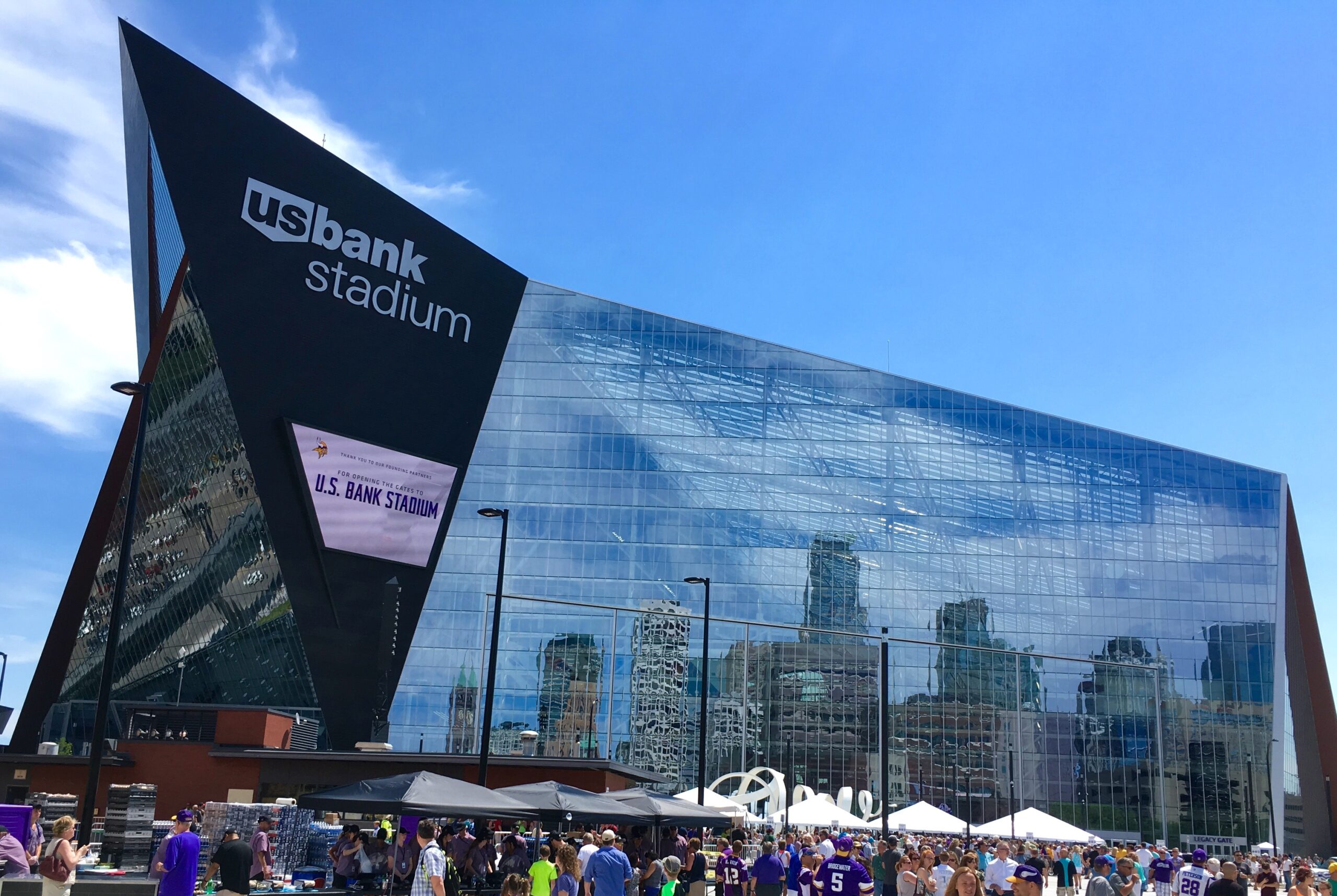
- Year Built: 2016
- Team: Minnesota Vikings
- Details: As one of the newest stadiums in the NFL, U.S. Bank Stadium excels in Wi-Fi performance. Fans consistently report strong, reliable connections, even during the most crowded events. The modern design of the stadium includes advanced technology that ensures high-quality Wi-Fi service throughout.
21. Lucas Oil Stadium
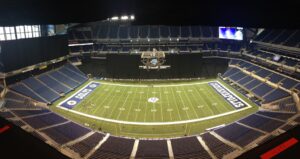
- Year Built: 2008
- Team: Indianapolis Colts
- Details: Lucas Oil Stadium has one of the best Wi-Fi networks in the NFL. Fans praise the connection speed and reliability, even during major events. The stadium has kept up with technological advancements, ensuring that fans can stay connected throughout the game.
22. Levi’s Stadium
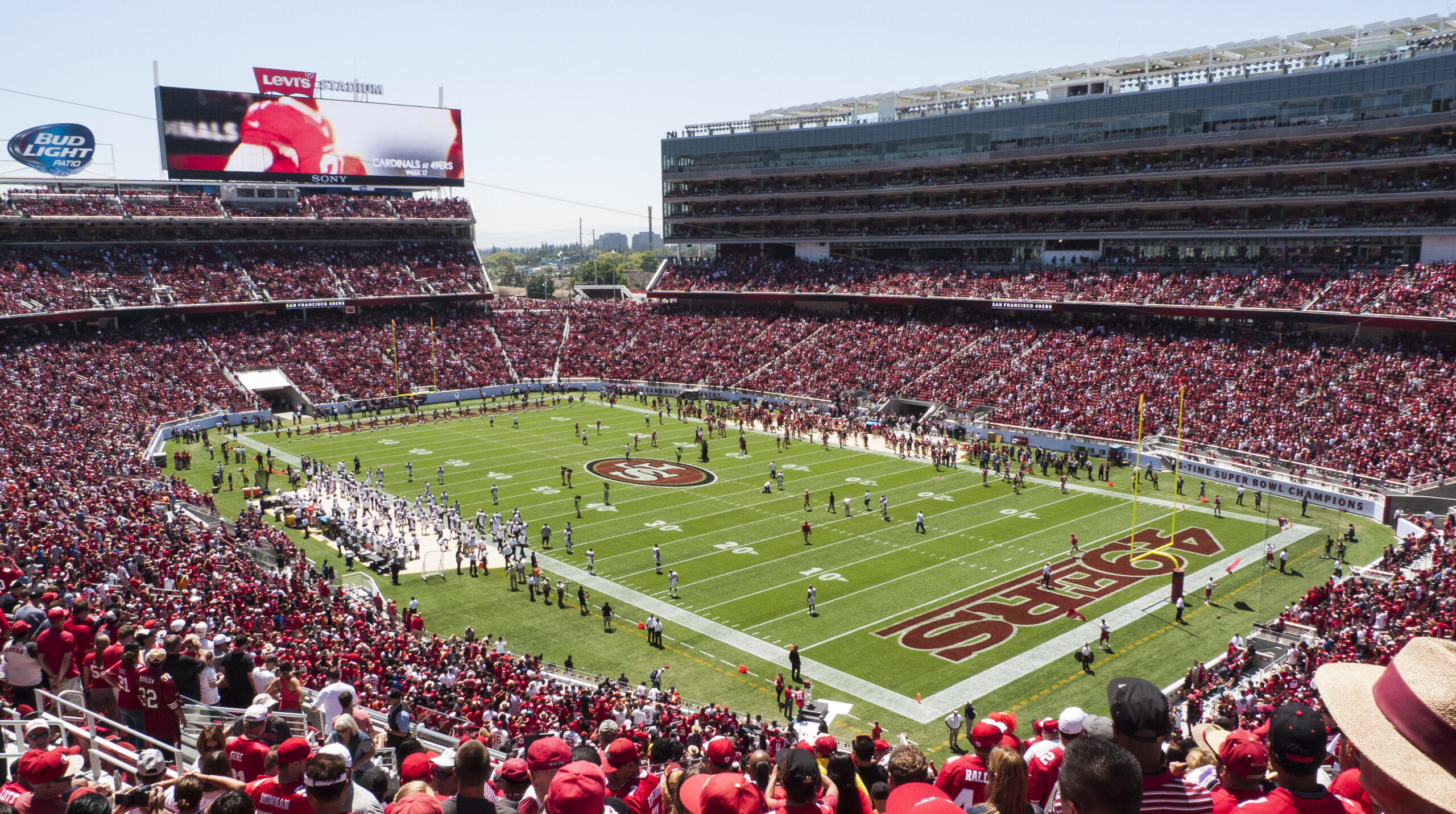
- Year Built: 2014
- Team: San Francisco 49ers
- Details: Levi’s Stadium is known for its cutting-edge design and technology, and its Wi-Fi is no exception. Fans can expect fast, reliable connections, even when the stadium is full. As one of the most modern stadiums, Levi’s has invested heavily in maintaining top-tier Wi-Fi infrastructure.
23. Mercedes-Benz Stadium
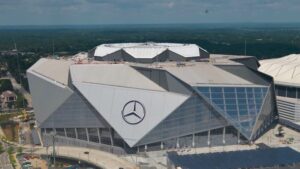
- Year Built: 2017
- Team: Atlanta Falcons
- Details: Mercedes-Benz Stadium offers one of the best fan experiences in the NFL, and its Wi-Fi network is part of that. Fans regularly report fast and reliable connections, thanks to the stadium’s investment in state-of-the-art technology.
24. AT&T Stadium
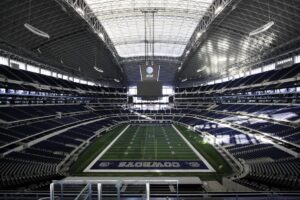
- Year Built: 2009
- Team: Dallas Cowboys
- Details: AT&T Stadium is not only one of the largest stadiums in the NFL but also one of the best in terms of Wi-Fi performance. The stadium’s advanced network ensures that fans can stay connected without interruption, even during high-profile events like the Super Bowl.
25. EverBank Stadium
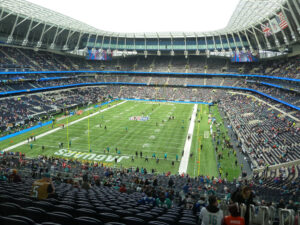
- Year Built: 1995
- Team: Jacksonville Jaguars
- Details: EverBank Stadium offers excellent Wi-Fi coverage, with fans consistently praising the connection quality. While the stadium is older, it has kept up with modern technology, ensuring that fans have a reliable Wi-Fi experience.
26. Lumen Field

- Year Built: 2002
- Team: Seattle Seahawks
- Details: Lumen Field is known for its great fan atmosphere, and its Wi-Fi network enhances the experience. Fans report minimal issues with connectivity, thanks to recent upgrades to the stadium’s network infrastructure.
27. Ford Field
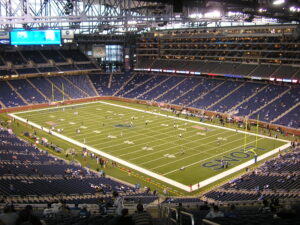
- Year Built: 2002
- Team: Detroit Lions
- Details: Ford Field consistently ranks among the best stadiums for Wi-Fi performance. Fans enjoy fast and reliable service, even during the busiest games. The stadium has invested in maintaining a high-quality network, ensuring that fans can stay connected throughout their visit.
28. Empower Field at Mile High
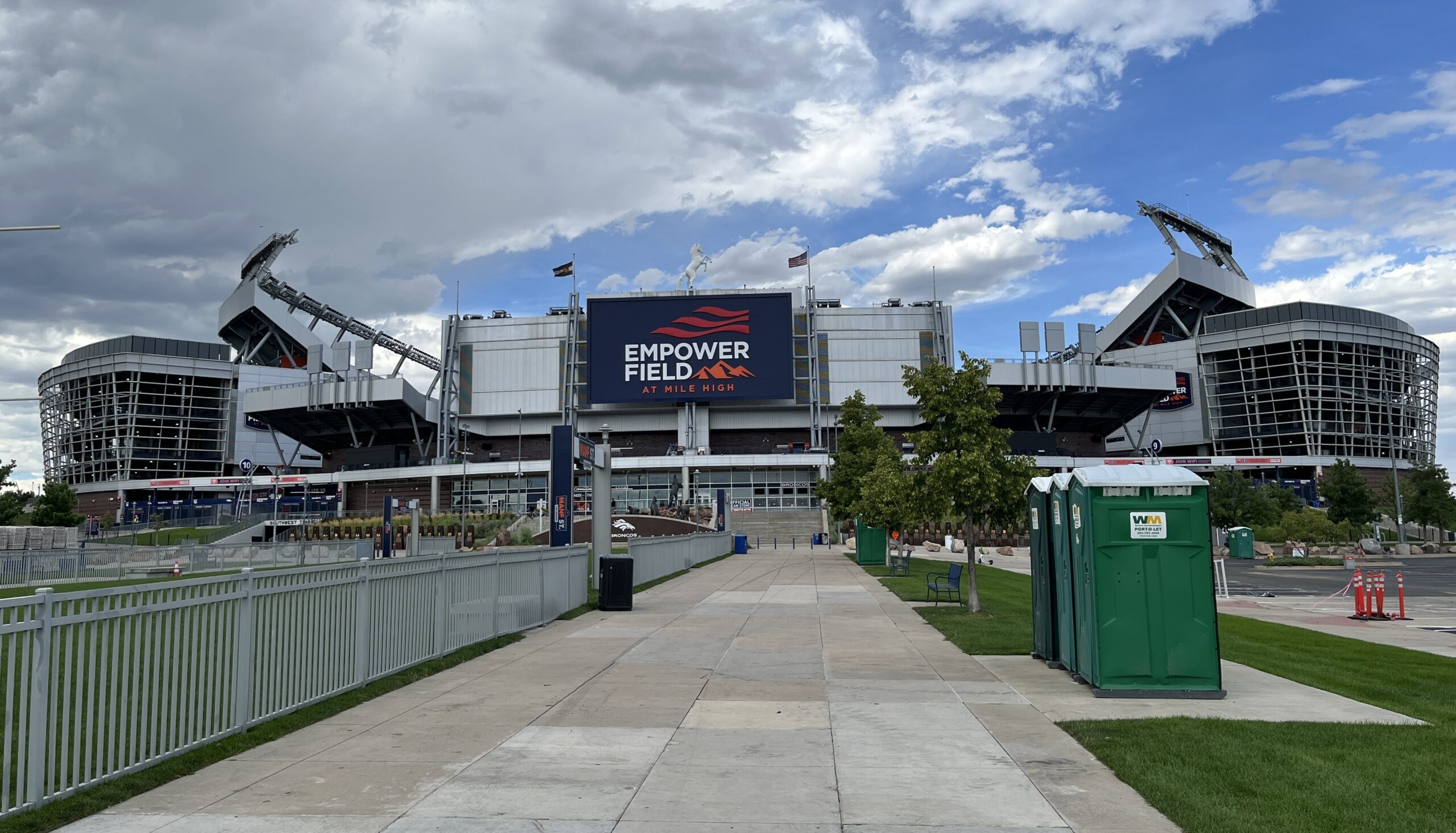
- Year Built: 2001
- Team: Denver Broncos
- Details: Empower Field offers one of the most reliable Wi-Fi networks in the NFL. Fans rarely report issues, thanks to the stadium’s commitment to keeping its technology up to date. Even during large events, the Wi-Fi performs well, providing a seamless experience for fans.
No Wi-Fi Reviews
Lambeau Field
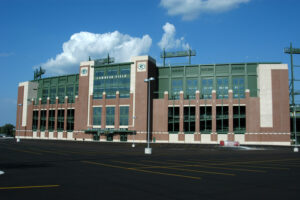
-
- Year Built: 1957
- Team: Green Bay Packers
- Details: Lambeau Field is one of the most iconic stadiums in the NFL, but its Wi-Fi performance is a mystery, as there were no recent reviews available. The stadium’s age may contribute to its limited technological upgrades, but without recent data, it’s difficult to assess its current Wi-Fi capabilities.
Cleveland Browns Stadium

-
- Year Built: 1999
- Team: Cleveland Browns
- Details: Cleveland Browns Stadium had no recent Wi-Fi reviews, making it challenging to evaluate its current network performance. The stadium has hosted major events, but it’s unclear whether its Wi-Fi infrastructure has kept pace with fan expectations.
Conclusion
As we head into the 2024 NFL season, staying connected at games has become more important than ever, but not all stadiums are keeping pace with fan expectations. While modern stadiums like SoFi and Allegiant boast cutting-edge design and amenities, they surprisingly fall short in terms of Wi-Fi quality. On the other hand, venues like U.S. Bank Stadium and Lucas Oil Stadium set the standard, offering consistently strong and reliable Wi-Fi connections that enhance the game-day experience.
Older stadiums such as Paycor, Highmark, and Soldier Field still struggle with outdated infrastructure, leaving fans frustrated with slow or nonexistent connections. Meanwhile, several stadiums, including Lambeau Field and NRG Stadium, have little to no recent data on Wi-Fi performance, making it difficult to gauge their current standing.
Overall, this analysis highlights the importance of modernizing network infrastructure in NFL stadiums. For fans paying higher ticket prices and attending more games than ever, reliable Wi-Fi is no longer just a luxury—it’s a necessity. Stadiums that prioritize connectivity are more likely to create a positive, seamless experience for attendees, while those that lag behind risk frustrating their fanbase. As technology continues to evolve, it will be critical for teams and stadium operators to invest in robust Wi-Fi systems that can handle the growing demands of connected fans.
Methodology
The data team at PivIT Strategy scraped a total of 448,203 Google Reviews from all NFL stadiums across the United States. Each review was individually filtered to identify mentions of Wi-Fi. After identifying relevant reviews, the team assessed whether each one had a positive or negative connotation regarding the Wi-Fi experience.
- Negative connotation example: “No WiFi access is a disappointment for a ‘state-of-the-art’ facility.”
- Positive connotation example: “WiFi actually works well for 65,000+ fans.”
For each stadium, we calculated the ratio of positive Wi-Fi reviews to the total number of reviews and did the same for negative reviews. To determine the final Wi-Fi ranking, we subtracted the negative review ratio from the positive review ratio, resulting in a net score that reflects the overall Wi-Fi experience at each stadium.
Jeff Wolverton
Jeff, the CEO of PivIT Strategy, brings over 30 years of IT and cybersecurity experience to the company. He began his career as a programmer and worked his way up to the role of CIO at a Fortune 500 company before founding PivIT Strategy.


